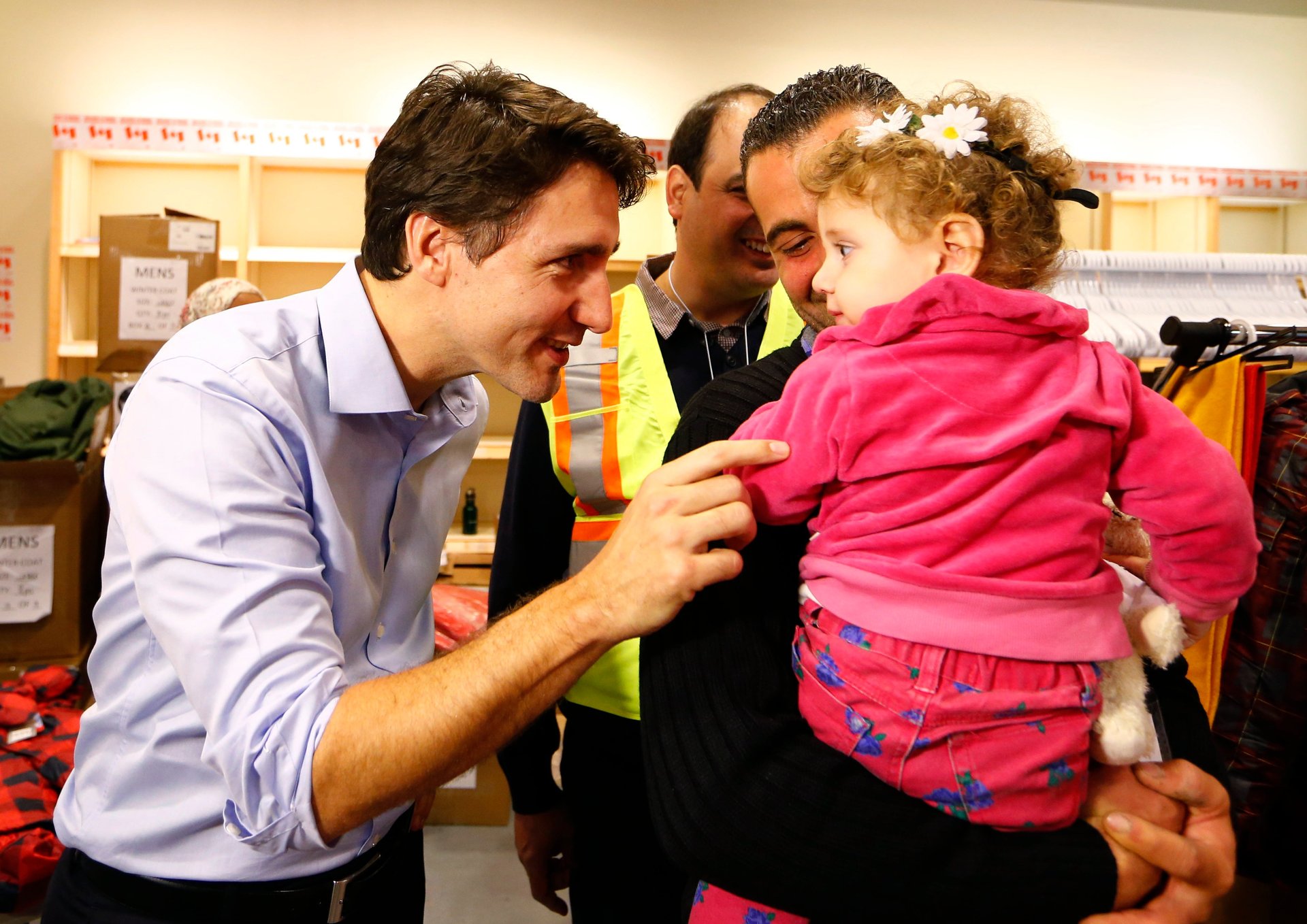A Syrian refugee in Canada: “2016 was the year my life changed forever”
“Before the war, I had many friends and I owned a family bookstore, which my father had passed on to me. The life we lived—my wife, three children and me—was simple, and we were happy.”


“Before the war, I had many friends and I owned a family bookstore, which my father had passed on to me. The life we lived—my wife, three children and me—was simple, and we were happy.”
This is how Nabel Alali neatly summarizes his life before 2011, when Syria’s brutal civil war forced the young father to leave for Jordan. He waited there for three years before being assigned to a new home in Canada by the government. When he arrived in January of 2016 with his family, he knew next to nothing about the country. In an essay in today’s Globe and Mail newspaper, Alali writes honestly about the fear and frustrations he and his family have lived with over the past year.
Alali spent three months in a hotel in an eastern suburb of Toronto while he waited for an appointment with a housing counsellor. He explains:
Every day, I was afraid. I wondered if I was in the right city for my family. I know now that it was – but living in the hotel for three months was difficult: Was there another place I could go which would offer us better opportunities? Would this city be everything we had hoped for, once I actually got the chance to see it?
Our movement was very limited, as we knew nothing about the transportation system and didn’t have many other ways to get around. We didn’t experience life outside the hotel. We grew restless, and everything was at a standstill.
It felt like the organization that was responsible for us wasn’t working fast enough to help us settle.
Alali is one of 21,000 government-assisted refugees who have been resettled in Canada since November 2015. Another 13,000 refugees have been resettled through private sponsorship paths, a system that allows community members to take personal responsibility for helping refugees get their lives on track. That route, which has been described through feature stories in Quartz and the New York Times, typically helps refugees to feel they have found an extended family in Canada—and they enjoy the support and tensions that come with that.
Government-sponsored refugees often face more trying circumstances. Their fresh start in Canada might be anticlimactic at best, as refugees typically live in a hotel for weeks or months, often on the outskirts of a city. Although they are safe and have immigration agencies seeing to their needs, the period has been characterized as a kind of hopeless limbo for families who are eager to work and kick off a productive life.
When Alali was finally able to move into his own home, his fears didn’t immediately subside. “I didn’t know anything about the supermarkets or where to buy food. I didn’t know where to find a family doctor or dentist. I was scared,” he says.
He has since made friends and encountered kindness from every corner of Canadian society, he writes, and he has begun volunteering as a translator, assisting other Syrians who speak less or no English. But he’s still seeking fulfilling work, and is unsure of how to find it: Does he take any job now or invest the time and money in becoming certified as a teacher again?
More than a year after many Syrians first arrived in Canada, more community groups and research organizations are beginning to discuss the end of the honeymoon phase for refugees. Mental health groups are concerned about delayed signs of trauma that may appear as depression, anxiety, or PTSD, any of which may materialize long after settlement because of what’s known as the newcomer health effect.
They’re also monitoring the impact of xenophobia, a troubling issue even though most Canadians have become more immigrant-friendly throughout the years of the refugee crisis. One research group in Alberta that plans to investigate how to make the transition to Canada easier is also hoping to dispense with the myths some Canadians hold on to. “Refugees come with tremendous resilience and an ability to survive. They want to contribute to our society, they want to give back,” Kathryn Friesen, a program manager at Catholic Social Services told the Edmonton Journal. “The idea of the burden on our system … it’s really not there. … We have supports in place so people have a good start, but they start giving back so quickly.”
Despite lingering uncertainties, Alali’s essay also expresses gratitude for the support he’s been given. Writes Alali: “There has not been a moment where I felt like a refugee or that this wasn’t my country.”